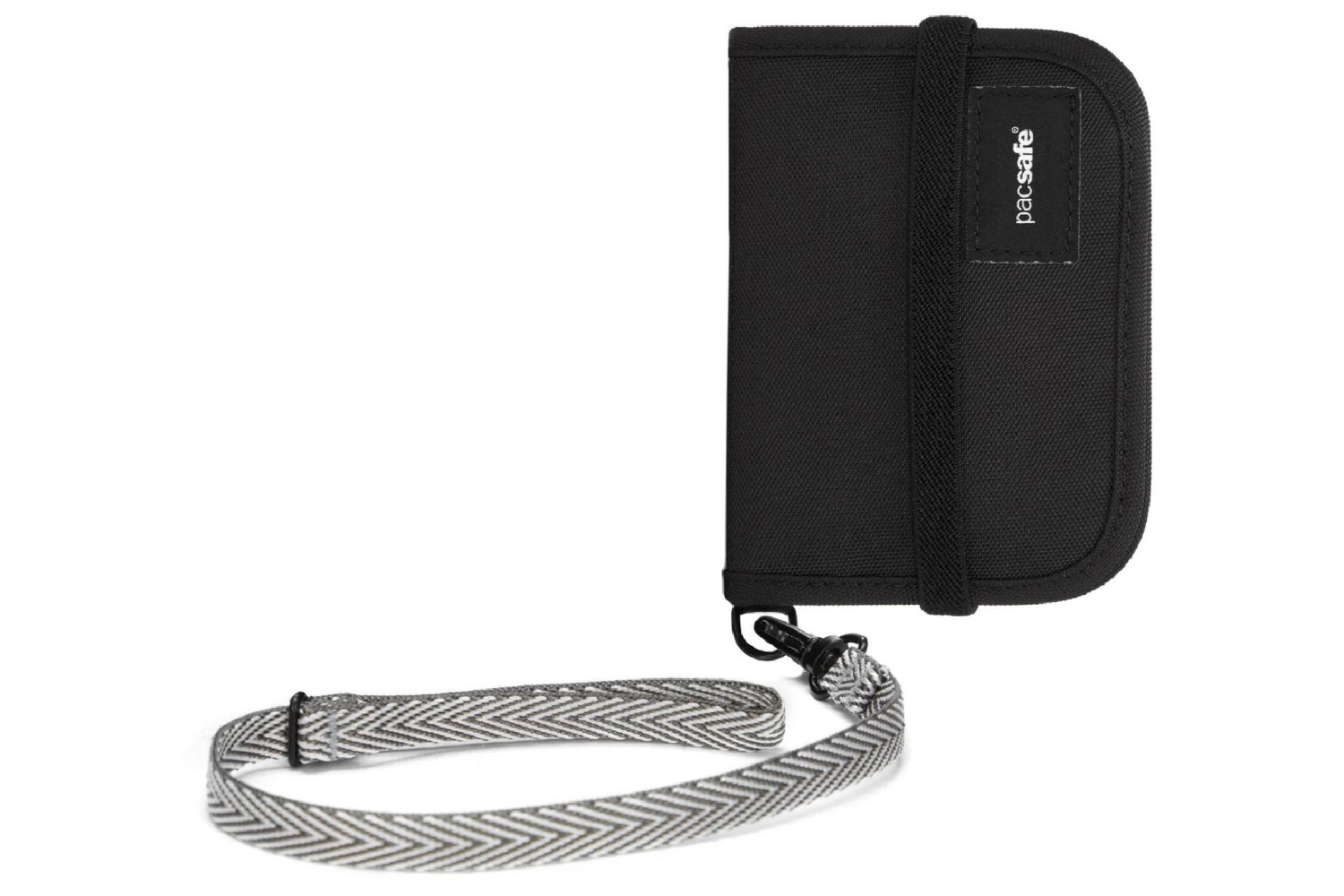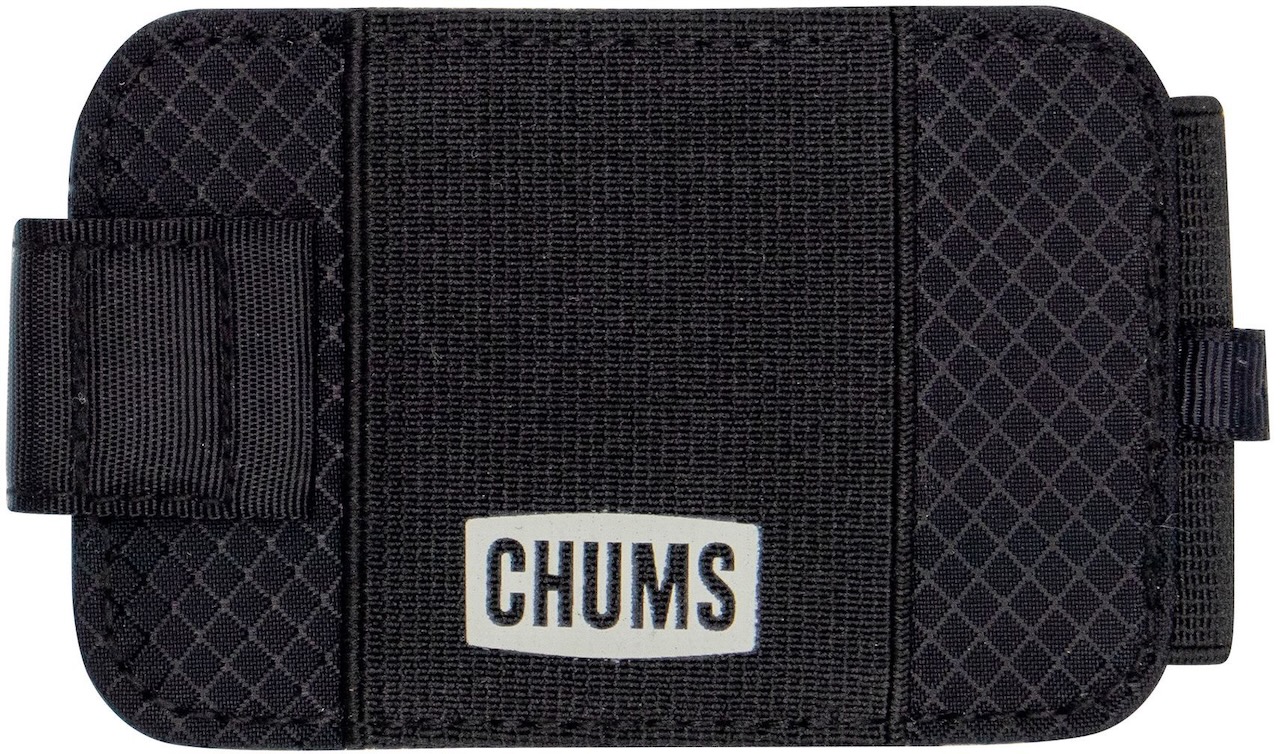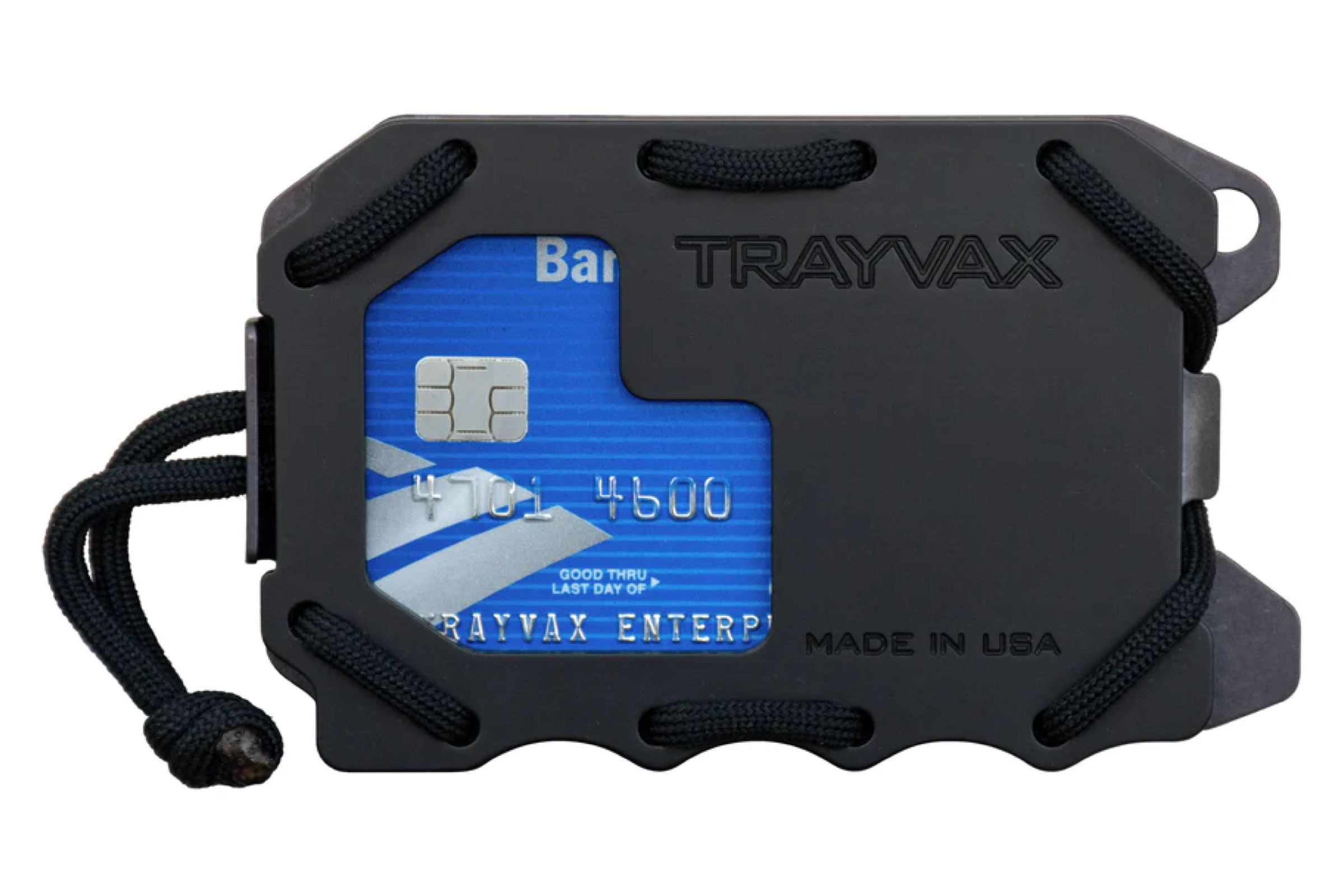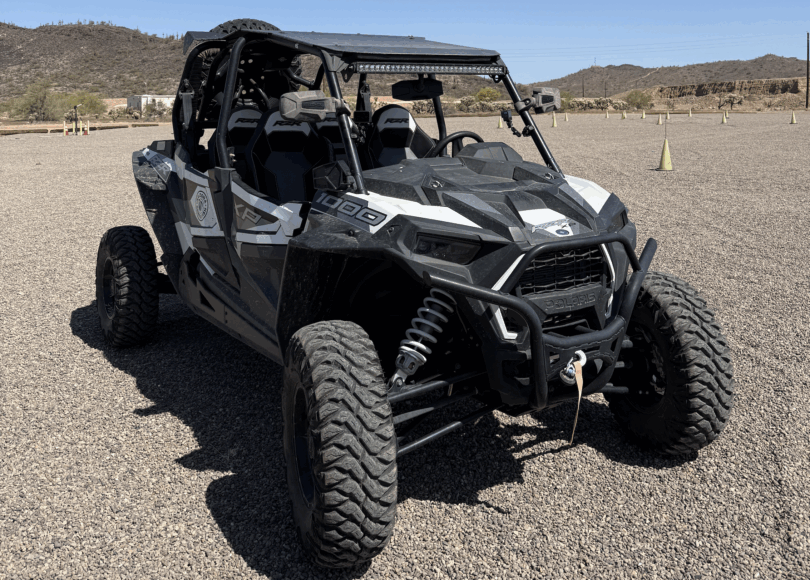The best minimalist wallets can hold three to five credit cards, your ID, and some cash. Despite this simplicity, companies have found ways to make their slim wallets stand above the crowd. Features like tough materials, stylish designs, and RFID blocking helped us identify the standouts.
Our resident wallet enthusiasts and testers Billy Brown and Andrew Potter are frequent contributors to GearJunkie in the everyday carry and fitness realms. During months of testing, they stuffed each wallet full of credit cards and cash and went about daily life so they could make solid assessments about the durability, style, and convenience of each wallet to bring you our list of favorites below. Whether you’re looking for the overall quality of our top pick, The Ridge Wallet or the value of our top budget pick, the Buffway Slim Wallet, we’ve got you covered.
For a comprehensive education on minimalist wallets, check out the Buyer’s Guide, comparison chart, and price and value section.
Editor’s Note: We refreshed this Buyer’s Guide on October 11, 2024, by adding our favorite minimalist travel wallet, the Pacsafe V50 Bi-fold, to our testing lineup and adding a price and value section.
The Best Minimalist Wallets of 2026
The Ridge Wallet
- Material: Anodized aluminum
- Capacity: 5 cards plus cash
- Weight: 2.0 oz.
- RFID: Yes
Pros
- Room for 5 cards
- Effective RFID blocking
Cons
- Pricey
- Keeping your keys in the same pocket will scratch the surface
Buffway Slim Wallet
- Material: Leather
- Capacity: 8 cards (including ID) plus cash
- Weight: 1.1 oz.
- RFID: Yes
Pros
- Low price
- Room for 8 cards
- Effective RFID blocking
Cons
- Overstuffing card slots can stretch them out
- Allows cards to fall out when they’re not crammed in
Pacsafe V50 RFID Blocking Bi-Fold Wallet
- Material: Nylon
- Capacity: 5+ cards (including ID) plus cash
- Weight: 2.5 ounces
- RFID: Yes
Pros
- RFID safe
- Versatile
- Included lanyard for travel safety
Cons
- Not the best for cash
- Not large enough for passport
Tanner Goods Journeyman Wallet
- Material: Leather
- Capacity: 5 cards plus a small amount of cash
- Weight: 1.0 oz.
- RFID: No
Pros
- Evolving look
- Durability
Cons
- Price
- Hard to access bills in the center pocket
RUNBOX Slim Wallet
- Material: Leather
- Capacity: 10 cards and plenty of cash
- Weight: Unavailable
- RFID: Yes
Pros
- Stores 10 cards
- RFID blocking
- Space for 20 bills
- Easy access to cash
Cons
- Bigger than most slim wallets
Groove Life Groove Wallet
- Material: Anodized aluminum
- Capacity: 6 cards plus cash with an additional elastic band
- Weight: 2.7 oz.
- RFID: Yes
Pros
- Slim
- Durable
- Cool mechanism for accessing cards
Cons
- Expensive
Chums Bandit Bi-Fold Wallet
- Material: Nylon
- Capacity: 5 cards (including ID) plus cash
- Weight: 1.1 oz.
- RFID: Yes, with included card
Pros
- Very slim and lightweight
- Separate ID window
- Magnetic closure helps keep contents secure
- Affordable price
Cons
- Only fits 4 cards plus ID
- RFID blocking card takes up a card slot
- Nylon doesn't feel as sturdy as other materials
- Material: Anodized aluminum
- Capacty: 15 cards and five bills
- Weight: 2.4 oz.
- RFID: Yes
Pros
- Stores large number of cards
- RFID blocking
- Integrated pry bar
Cons
- Sharp edges wear out pant pockets
- Takes a little longer to access cards
- Material: Blend
- Capacity: Seven cards including photo ID sleeve
- Weight: Unavailable
- RFID: No
Pros
- Durable
- Slim
- Easy to display photo ID
Cons
- No RFID blocking
- Material: Leather
- Capacity: Three cards plus cash
- Weight: Unavailable
- RFID: Yes
Pros
- Very slim
- Magnetic money clip
Cons
- Minimal card slots
- Material: Polyester
- Capacity: Four cards plus cash
- Weight: Unavailable
- RFID: Yes
Pros
- Stylish
- Slim
- RFID blocking
Cons
- Hard to access cards and bills
- Durability
Minimalist Wallet Comparison Chart
| Minimalist Wallet | Material | Capacity | Weight | RFID | Price |
|---|---|---|---|---|---|
| The Ridge Wallet | Anodized aluminum | 5 cards plus cash | 2.0 oz. | Yes | $95 |
| Buffway Slim Wallet | Leather | 8 cards (including ID) plus cash | 1.1 oz. | Yes | $20 |
| Pacsafe V50 RFID Blocking Bi-fold Wallet | Nylon | 5+ cards (including ID) plus cash | 2.5 oz. | Yes | $37 |
| Tanner Goods Journeyman Wallet | Leather | 5 cards plus a small amount of cash | 1.0 oz. | No | $85 |
| RUNBOX Slim Wallet | Leather | 10 cards and plenty of cash | 3.5 oz. | Yes | $30 |
| Groove Life Groove Wallet | Anodized aluminum | 6 cards plus cash with an additional elastic band | 2.7 oz. | Yes | $90 |
| Chums Bandit Bi-Fold Wallet | Nylon | 5 cards (including ID) plus cash | 1.1 oz. | Yes | $17 |
| Trayvax Original 2.0 Wallet | Anodized aluminum | 15 cards and 5 bills | 2.4 oz. | Yes | $51 |
| Magpul DAKA Everyday Folding Wallet | Blend | 7 cards ( including ID) | 1.8 oz. | No | $23 |
| Fossil Magnetic Card Case Wallet | Leather | 3 cards plus cash | 2.2 oz. | Yes | $40 |
| Herschel Charlie RFID Case | Polyester | 4 cards plus cash | 1.1 oz. | Yes | $22 |

How We Tested Minimalist Wallets
To find the best minimalist wallet, we pared down our back pockets to the bare essentials and set off to test the best ways to carry a fistful of cards and cash. During testing, we paid close attention to each wallet’s overall capacity, protection, durability, and carrying comfort.
Authors Billy Brown and Andrew Potter have been testing EDC essentials for well over a decade. As a frequent traveler, father, and generally busy guy, Billy aims to streamline his go-everywhere possessions as much as possible. Andrew also strives for any chance to cut down the amount of crap in his pockets.
While testing wallets for this guide, Billy and Andrew rotated through each model with a quiver of cards and a wad of cash, swiping their way through credit card transactions and flashing IDs. Each wallet spent plenty of time in their back pockets, and while a softer, leather wallet is marginally more comfortable, they were happy to find that some rigid metal wallets feel just fine during long periods of sitting.
Since minimalist wallets can be a bit of a race to the bottom, we attempted to assemble a broad spread of the available market — from the super minimal to the still-featured-but-elegant. We found that the ideal wallet lands somewhere in the middle, with organization being a big consideration in our final line-up.
To complete your EDC kit, also check out our reviews of the Best Flashlights and the Best Pocket Knives.
Buyer’s Guide: How to Choose the Best Minimalist Wallet
Analyze How Much You Can Carry
Every wallet will be different. Some have more card slots, some have more space for cash, and some will have clips. The key here is to find out what you absolutely need to carry with you.
The first thing most people need is a driver’s license. After that, a debit card and a credit card are both good ideas. After that, some cash might be handy, so bring along a few 20s just to be safe. Because most slim men’s wallets have at least four card slots, that leaves you one free.
Some of our testers tend to use their final card slot as an interchangeable storage space. If you’re going to Costco, bring your membership card. Target, your Target credit card. Use that utility pocket however you like. This should keep you ready for any contingency.
Pare Down
Part of figuring out what you need is deciding what you don’t need. Yes, you’ll have to go all Marie Kondo here. Be ruthless with what you choose to discard. You will likely always need the big three: a driver’s license or ID, a credit card, and a debit card.
If you carry cash, you’ll need room for a few bills. For most people, three card slots are plenty and leave room for the occasional key card for people who have to pass security clearances. Everything else you keep in a big, bulky wallet is nonessential.
Pictures? They’re all on your phone. Receipts? Leave them at home until you actually need them. Those punch cards that’ll get you a free burrito after your eighth purchase? Stash them in your center console. Business cards? They’ll be safer in a business card case.
That should take care of all the unnecessary things you keep in your wallet. The remainder should fit just fine in a slim wallet, and ride along in a pocket just dandy with your favorite knife or everyday carry kit.
If you absolutely need to have more than four to six cards in your wallet, you can opt for a bi-fold mini wallet like the RUNBOX Slim Wallet. These give you more storage in a package that is still compact.
Leather vs. Metal vs. Nylon
Both leather and metal and nylon (or similar materials) have different perks. Leather wallets feel better in hand and don’t have any corners that can wear away at your pants over time. Metal is tops in terms of durability as long as the wallet is built well.
A lot of this comes down to style preference. People who prefer a modern, sleek look will likely gravitate more toward the look of the Ridge Wallet or the Groove Life Groove Wallet. These cases are generally bombproof, too.
One issue with metal wallets is that they can bend or scratch easily. If you want that sleek look to last, you’re going to have to take care of it. That means keeping it away from keys or other objects that might scratch it.

On the other hand, a well-made wallet crafted from high-quality leather is ideal for people who want a more classic look. With the right leather and construction, leather wallets can last for decades.
Leather wallets are also dynamic in their appearance and feel. The material grows softer and more supple over time, and any scratches or wear marks give the wallet more character.
If you’re considering a leather wallet, try to find one with a good vegetable dye and opt for a lighter color. The leather will darken over time as it is exposed to the elements and the oils on your skin. The result is an antique-looking patina that constantly changes and develops over time.
Nylon wallets are designed with materials similar to an old-school fanny pack. They’re malleable, are barely noticeable in your pocket, and tend to be extremely light. Like fanny packs, they tend to be great for travel like the Pacsafe V50 Bi-Fold.

RFID Explained
RFID stands for Radio Frequency Identification. If your card is equipped with RFID, you can use it to tap or wave your card near a reader to make a purchase. This allows you to make transactions in seconds.
An RFID card never has to leave your hand, so there’s no chance of you forgetting your card in the reader. If you’re not sure whether or not your card is RFID-enabled, look for a symbol that resembles a Wi-Fi symbol turned on its side.
As RFID technology becomes more prevalent, a trip to the grocery without waiting in a checkout line may be a reality. Semi-passive chips can be placed on anything to track inventory, associate the items in your cart with your card, and charge you before you walk out the door. While this technology has huge potential for streamlining shopping, it also raises some big privacy and security concerns.
This convenience also makes it possible for a thief to find a way to skim your card with a portable scanner. Currently, many factors make this difficult for potential thieves. These include the necessary closeness and barriers between the card and the reader like a wallet with cash and other cards inside.
While the odds of your cards getting skimmed are unlikely, many wallets offer RFID blocking to completely eliminate any chances of this happening. This is mostly achieved by using materials that block or damp the signal put out from RFID-equipped cards. The best RFID-blocking wallets on this list include the Ridge Wallet and Pacsafe V50 Bi-fold
When your card is in the wallet, the material blocks the signal. When you take it out to use it, the signal is unfettered.

Price & Value
The minimalist wallets on this list cost between $17 and $95. The key differences are in the wallet’s build, features, and the quality of the materials used.
Budget
Lower-cost options ($17-23) in this category will still serve your needs. Wallets like the Chums Bandit ($17), made of nylon, and our budget pick, the leather Buffway’s Slim Wallet, still carry the essentials in sleek designs. They don’t have as many features like RFID protection and are likely less durable than others in the costlier price tiers, but they’re a good entry point, so you can see if you even like slim wallets.
There’s no sense in spending 90 bucks on a slim wallet if there’s a chance it’ll be too small for you. If you’re just trying out your first minimalist wallet, get an inexpensive one as a test run.
Mid-Tier
While there aren’t too many options on our list in this range ($30-50), the few we did include are solid choices with the ability to hold a lot more than many others. The Trayvax Original 2.0 Wallet ($52) has a sleek and simple design, yet it can hold up to 15 cards at once, while the RUNBOX Slim Wallet ($30) can hold up to 10 cards and up to 20 bills. Both of them also boast RFID-blocking, a characteristic typical in wallets in this price tier.
Premium
Wallets in this tier ($80-95) typically have all the features you need and are made of higher quality or bombproof materials. Over overall pick, the Ridge Wallet ($95) made of anodized aluminum boasts a money clip, RFID blocking, and an expandable tray for easy card access.
It is also drop-proof and holds a ton. The Journeyman Wallet ($85) is made of high-end leather that will soften but not weaken over time. A well-made leather wallet will not only last longer than a poorly made one with inferior leather, but it will also look better as it ages.
Frequently Asked Questions
If less bulk in your pockets is a priority, minimalist wallets are excellent. They’ll fit in any pocket without unsightly bulges, and they force you to carry only what is absolutely necessary. The fact that they are small in size doesn’t mean they are small in features, either.
Depending on the variety, these wallets can carry eight to 10 cards and a good amount of cash. Plus, they can offer RFID-blocking materials. They come in a wide range of materials and designs, with styles available to suit just about every taste. If you’re looking to pare down your everyday carry setup, a minimalist wallet is a necessity.
RFID wallets do not ruin credit cards. RFID wallets are made with materials that block the RFID signal from credit and debit cards. The card still puts out the signal, but the wallet’s materials prevent the signal from leaving your pocket. This makes it more difficult for anyone to skim the card’s information when it is inside the wallet.
Because the wallet’s RFID-blocking technology doesn’t actually affect the card’s ability to put out an RFID signal, it has no impact on the card at all. If you take the card out of the wallet, it will still put out a readable signal.
Traditionally, the thinnest types of wallets are minimalist front-pocket wallets. These wallets usually consist of a pouch with several card slots and either a small space for bills or an attached money clip.
Two of the thinnest wallets we’ve seen are the ultraslim offerings from European company DUN and American company SlimFold. Both are 5 mm thick, but they also have enough room for a few credit cards and some bills. At this point, it looks like 5 mm is the minimum for a wallet that has more functionality than a rubber band holding your stuff together.
Keep in mind that these measurements are for empty wallets. Any cards, bills, or coins will make the wallets thicker.
Every wallet and every pocket is different. With that said, most minimalist wallets are designed to fit comfortably in either your front or back pockets. While traditional bi-fold wallets are often too thick to slide into your front jeans pockets, the wallets on this list should not have that issue. If you have especially tight or thin pockets, we recommend a thin metal wallet such as the Ridge Wallet.
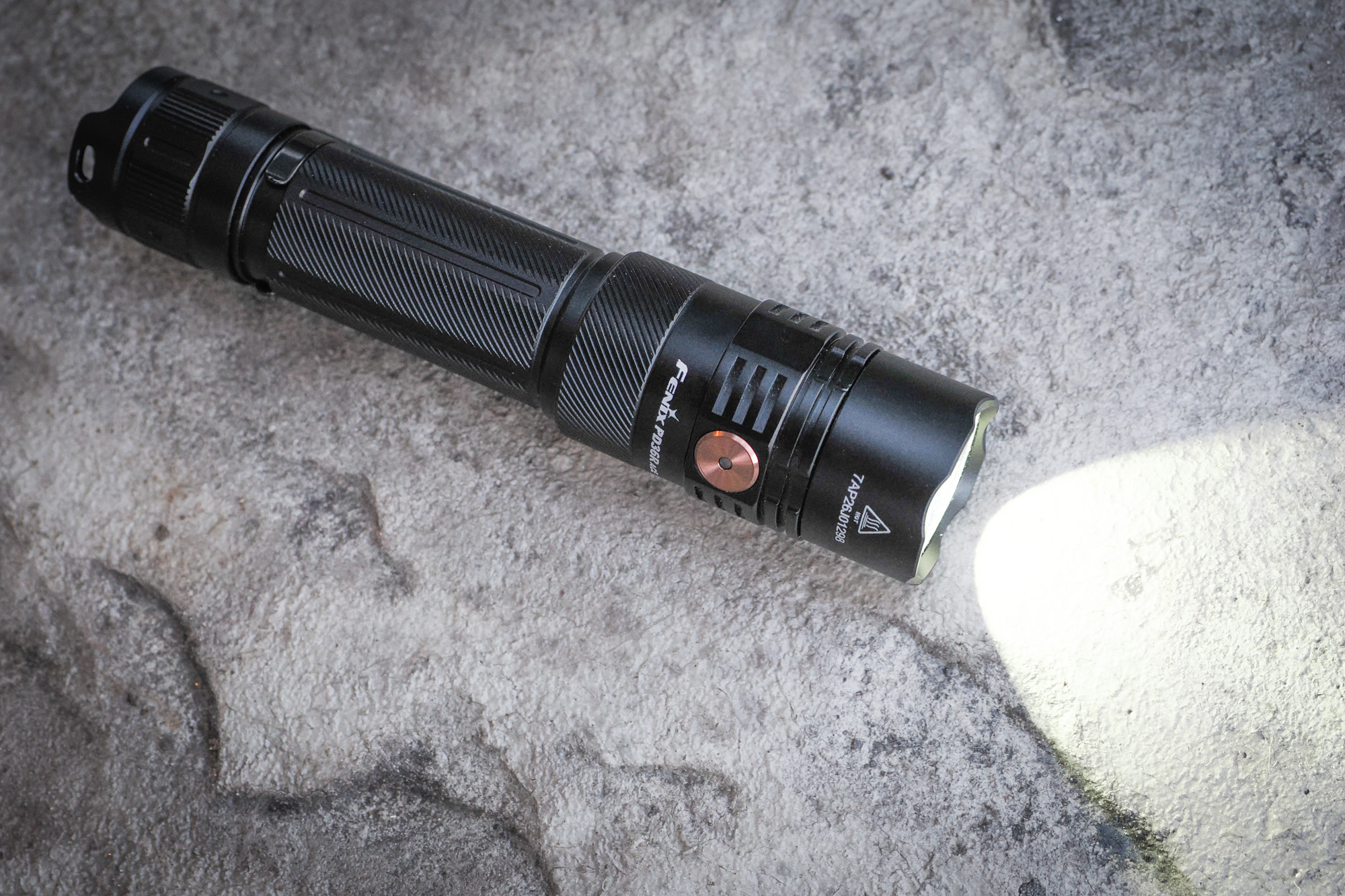
The Best Flashlights of 2026
We tested the best flashlights for 2026 with options for every budget. Top picks include Fenix, ThruNite, and more!

The Best Thermoses of 2026
If you want your favorite liquids to stay hot all day, check out our roundup of the best thermoses of 2026. Get ready to warm up with a hot drink.



